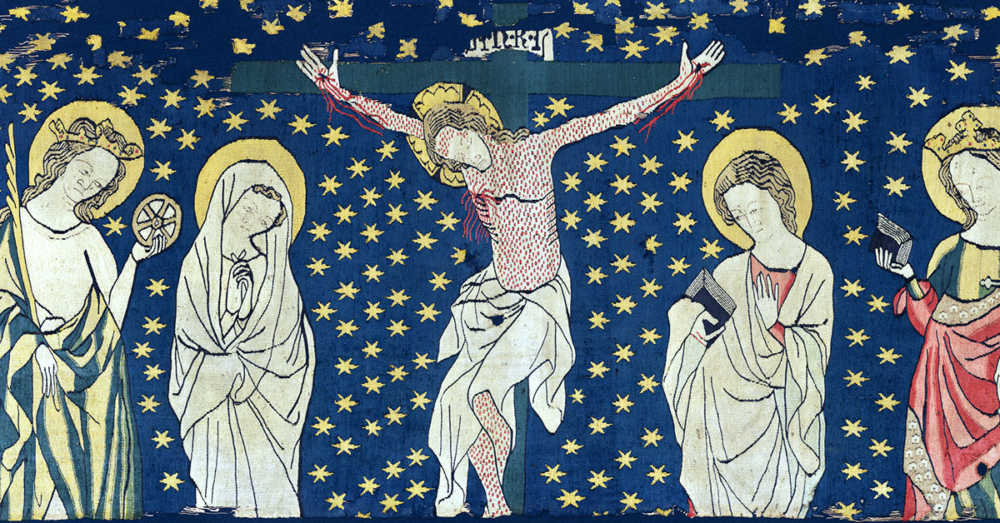We run our website the way we wished the whole internet worked: we provide high quality original content with no ads. We are funded solely by your direct support. Please consider supporting this project.

Why Did Jesus Cry Out that God Had Forsaken Him?
At the climax of Jesus’ suffering on the cross, Jesus cries out: “My God, my God, why have you forsaken me?” (Mt 27:46) It’s a jarring moment in the narrative. To forsake is to abandon. Did Jesus really believe that God had abandoned him? Was Jesus right about this? If he was right, what does that say about God? If he was wrong, what does that say about his connection with the father (about his standing within the trinity)?
Jesus had committed himself to doing the Father’s will, even though he anticipated it would involve a cup of great suffering (Mt 26:39). Paul tells us that, on the cross, “God made him who had no sin to be sin for us” (2 Cor 5:21). This means that, on Calvary, the all-holy God was totally saturated in our sin! Not only that, but Paul also teaches that, on the cross, “Christ redeemed us from the curse of the law by becoming a curse for us” (Gal 3:13). One who is cursed is estranged from God, which is why, when Jesus took on with our cursed state, he cried out: “My God, my God, why have you forsaken me?” (Mt 27:46). Jesus experienced the separation from God that we deserved, while experiencing abandonment on an infinitely more profound level than we could ever experience. And this means that, on Calvary, God, whose very nature is the perfect, loving union of Father, Son and Spirit, experienced the profound disruption of our God-forsakenness.
Yes, Jesus was abandoned, but the abandonment was a momentary horror that Jesus offered himself into. Furthermore, it was a rupture that overthrew Satan (1 John 3:8), and established our salvation (Hebrews 9:27-28). It was, to summarize, the greatest possible act of love.
Category: General
Tags: Cross, Crucifixion, The Cross
Verse: Matthew 27
Related Reading

Transported
What did Jesus do on the cross that we couldn’t do for ourselves? Jesus stood in our place. God stepped in to bear the consequences of our sin. And in doing so, Christ defeated the powers, in principle, ending the cosmic war. If we will yield to God, he transports us from the kingdom of darkness into the…

Podcast: Did Jesus Experience Genuine God-Forsakenness? (parts 1 and 2)
Greg discusses Jesus’ experience of God-Forsakenness, and looks at possible implications for the perfection of the trinity. Part One: http://traffic.libsyn.com/askgregboyd/Episode_0178.mp3 Part Two: http://traffic.libsyn.com/askgregboyd/Episode_0179.mp3

Podcast: Was Jesus’ Experience of Separation on the Cross a Hallucination or a False Belief?
Greg talks about the paradox of Trinity and Christ’s experience of separation on the cross. http://traffic.libsyn.com/askgregboyd/Episode_0349.mp3

Podcast: Does the Resurrection Diminish the Sacrifice of Jesus?
Greg discusses God’s sacrifice, the nature of separation from God, and shares a powerful story from his time in Cambodia, and offers this as an analogy for Christ’s inner sacrifice. http://traffic.libsyn.com/askgregboyd/Episode_0155.mp3

The Greatest Mystery of the Christian Faith
God has always been willing to stoop to accommodate the fallen state of his covenant people in order to remain in a transforming relationship with them and in order to continue to further his sovereign purposes through them. Out of love for humankind, Scripture tells us, Jesus emptied himself of his divine prerogatives, set aside…

Crucifying Transcendence
The classical view of God’s transcendence in theology is in large borrowed from a major strand within Hellenistic philosophy. In sharp contrast to ancient Israelites, whose conception of God was entirely based on their experience of God acting dynamically and in self-revelatory ways in history, the concept of God at work in ancient Greek philosophy…
